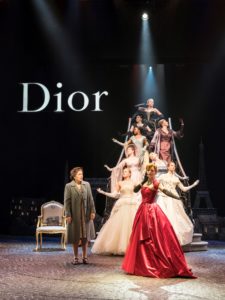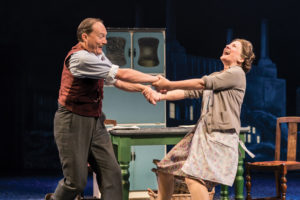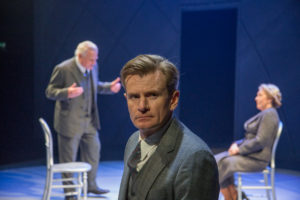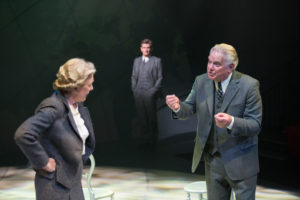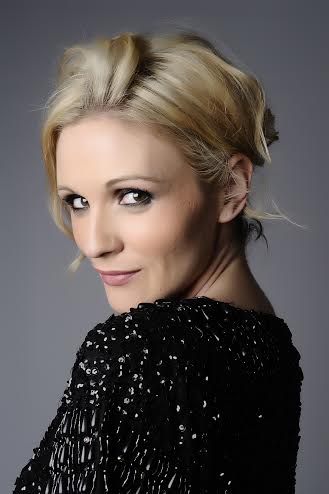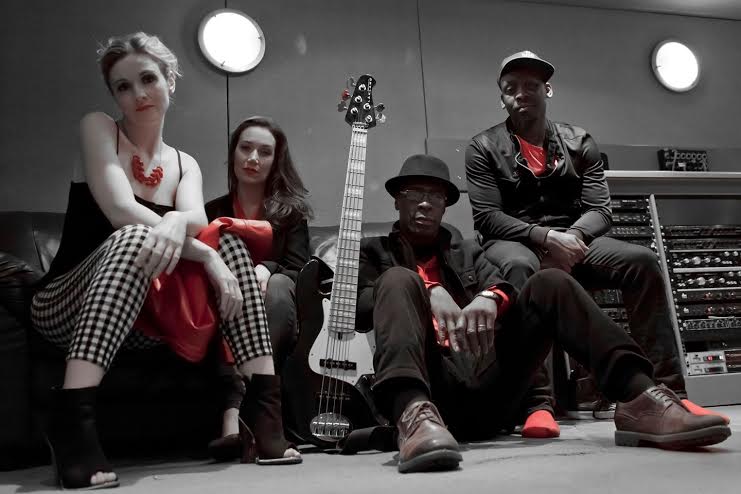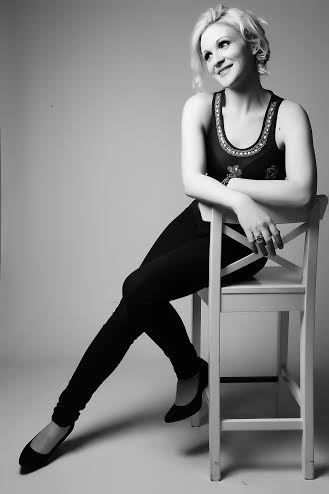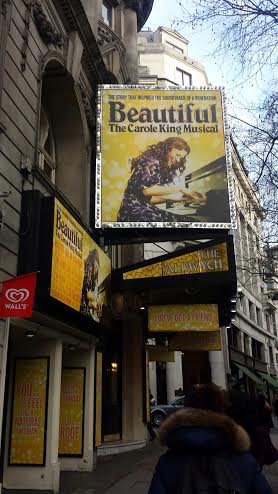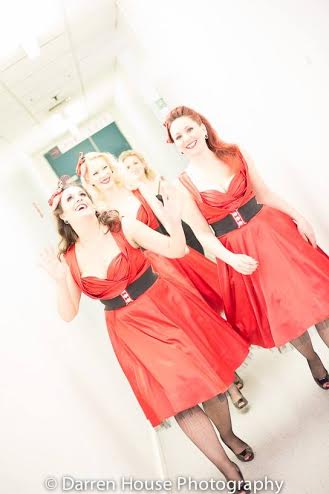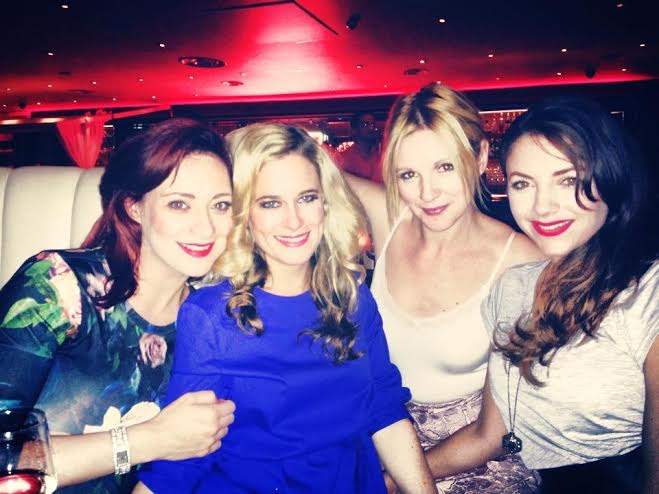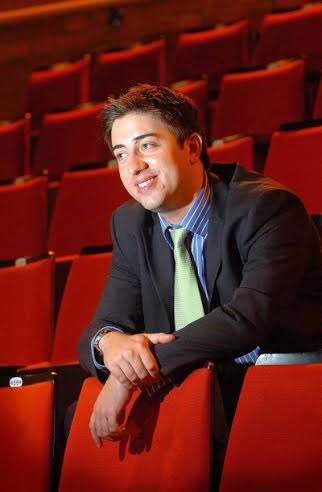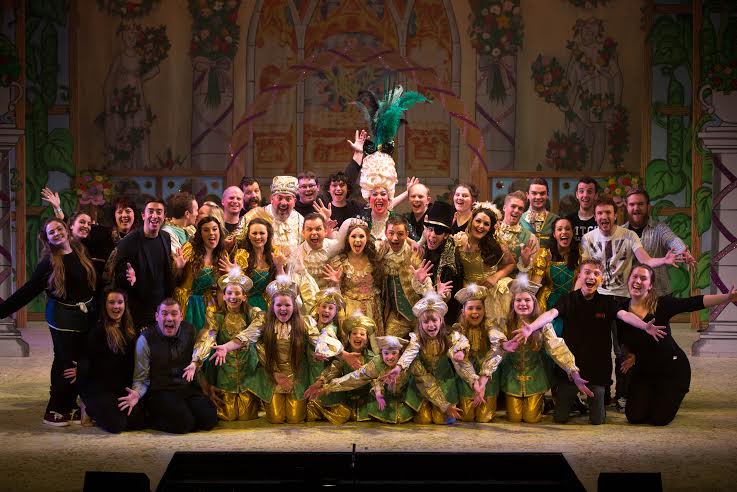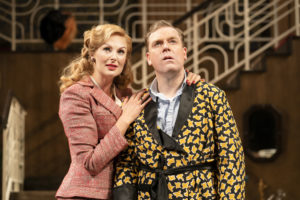
Explain a little bit about your new two-part series. What’s the idea?
I guess the idea is that it’s an exploration of a group of people who feel quite voiceless. What sold the idea to me was getting behind the image of this angry, white, working class male that was popping up everywhere, and that had views that conflicted with my own. I grew up white and working class, but I grew up in a very multicultural environment. None of the people who we followed in this documentary did – they grew up in largely white areas. It meant that I had to encounter things that I wasn’t totally comfortable with. But they had to be explored. I was trying to understand some of the reasoning behind people’s anger and unrest. I was looking at the situations of six young, working class white men, and their situations were not great, most of them. Whether or not they could find work, whether they had housing, all of that. This was an exploration of what it is to be white and working class in this day and age. Is it the people you see on Jeremy Kyle, is it the people you see on Benefits Street?
So you follow six guys over a period of six months, is that right?
Yeah. And each one is a different character, with their own issues. Some of them face similar problems, but they’re all very different people. None of us are wired the same. If we had tried to script the documentary, I don’t think we could have come up with the things that happened in their lives. Driving to Lewis’ house to find out if he’d got into Trinity, Cambridge, was one of the most terrifying things in the world, I was so nervous to film that part of the programme. I found I had quite a rapport with Lewis, because we both find ourselves between two worlds. His ability with mathematics could afford him social mobility, which not many people who are working class are afforded.
Were you with the guys quite a lot?
It was full on, yeah. I spent a lot of time with all of them. I’ve never shot a documentary over that length of time before. That’s longer than any tour I’ve done! To be that intensively involved in something, for that long, I’ve never seen anything like it.
Did you see anything that surprised you when you were making this?
I think, because of how I grew up, there was nothing that really surprised me. There were things that I thought were unfortunate, there were things that I thought were really sad. Things like finding out that David had missed out on two housing opportunities because he was illiterate, and he had no-one to read the letters to him, because he’d lost his mum and his dad. That was hard. And that’s the thing – you end up taking on people’s problems. People ask me if I enjoy making documentaries, and to be honest, I can’t say that they’re fun to make. Obviously I get some sort of fulfilment out of them, I feel like I’m bringing attention to things that would otherwise go ignored.
You also did some pretty personal stuff with the guys. Did you find aspects of filming really emotional?
Oh mate, the baby scan was harsh! I was told to go and meet one of the contributors in hospital, and I figured he was gonna show up with a broken nose or broken ribs something – he was a boxer, and he likes a scrap. But no – his girlfriend was expecting his first child. To be there at the baby scan, mate, it nearly made me well up. It was one of the most incredible things I’ve ever seen. It was such a powerful experience, I was just sat there in absolute awe. That little thing growing inside her – just amazing.
How did you find the experience of filming a Britain First march?
I went to the beginning if the march, I didn’t go on the march. It was horrible, I hated every minute of it. I was really reluctant to go. But I felt as though I wouldn’t be doing my job properly if I didn’t. David, one of the contributors, had said he was going to go on it, and I just didn’t understand it. I suppose when people don’t have anything, the only thing they feel they have is their whiteness. They’re angry, their lives aren’t great, and there’s someone they can blame for it.
Did you get massively frustrated with some of the guys who you featured? People like Denzel, who talk a good game, but blow any cash they have, rather than looking after it wisely.
Yeah, it was frustrating. It felt like he’d been infantilised. He’d never had to take on any level of responsibility before, because he lived with his gran and she did everything for him. I definitely think he could make better decisions, as far as his daughter is concerned. And I think he’s aware of that, and probably punishes himself a bit for it, or masks that by being a jack-the-lad and still having a bit of a party and so on. He was a charming bloke, and it was impossible not to like him, but he’s got a daughter. Would I make the same decisions he does if I was in his situation? It’s very easy to say no, but who knows?
Why is there a crisis among the working classes? Unemployment isn’t as high as at times in the past, but for some reason we feel more divided than ever. Why?
Jesus Christ! That’s a big question – one that probably never even came up in the documentary. I don’t know. It goes so much further than just being white and working class. I think what’s becoming apparent is the disparity between the rich and the poor. I think that’s coming to a head and things are getting worse. I think there’s a lot of people who are now being more penalised than ever for being poor. I think that’s what’s bringing it all to a head.
What would you say is the main factor that leads to a young working class white man making good decisions, as opposed to one who takes the wrong path?
I’d say probably family – and not just the presence of a parent, but parents who have time to be with their kids, which is difficult for a single parent who has to provide as well as raising a child. There’s a lot of time where kids may not have someone there. I was lucky, I always had someone there, for me, until my great gran passed when I was 13, which was when I went off the rails – because my nan had to work. She was out working. And another thing is that being poor creates stress. There was a lot of screaming and shouting in my household growing up, as there was in many households on my estate, just because of the situations families found themselves in. And it stays with you as a kid, it doesn’t just go away. It’s not something that disappears over time, it’s always in you. Those stresses and those anxieties still exist within me now. I hope that I can continue to work and make good money and leave something behind that gives my children, when I have them, all the security that I never had. But I still have no safety net. I don’t have the luxury of being able to go to mum and dad and getting bailed out. And then you make bad decisions. I wasn’t a bad kid, but I sold weed. I didn’t even meant to start selling it, but I always used to get it for my mates, and I just thought “Well, why don’t I smoke mine for free?” So I’d pick up an ounce and break it down, and I’d get my smoke for free. And then it started to go so quick that I was making money off it – all of a sudden, I’m a bloody drug dealer.
You shared quite a lot of your own experiences in the film, at a time when most celebrities are very wary of that sort of thing. Why did you feel it important to do that?
Otherwise I think people make assumptions. It would be really easy to bust that documentary off – “How can he be a voice of authority on this? He’s a rich rap artist who drives a Mercedes”. And I know that to be bollocks. In all of the documentaries I’ve done, I’m always the one that’s going to be judged, because I’m forming opinions. But I don’t tell people who are watching the programmes what to think. My role is just to be a catalyst for the people who I encounter. I’m really lucky, with the access that we get, and the openness and honesty that they give me, is great, and that’s something I don’t take very lightly.
Do you know how they’re getting on since filming?
A couple of them. I needed to spend a little bit of time just doing what I wanted – I’ve had a busy few years, for one reason or another – personal matters or work. And this was a real slog, a long project, and I had an operation quite early on in it. So it’s been a tough year. We got two amazing films out of it, but I needed a break. I’ve made seven films in under three years, which is all time spent living in other people’s lives. I felt like I’d lost a bit of a grasp on what my own life was, so I wanted to spend a little bit of time being selfish. So I’m just catching up with friends now, and getting in the studio, and doing stuff that makes me happy for a little while. Making music is my outlet, it’s how I tell my story.
A lot of the film is about how white working class men are judged and demonised and pigeon-holed. Do you still feel judged? That you’re not good enough?
Yeah, it never goes away. My life’s changed substantially because of the money that I’ve made, but I’m not from money, I’m not wealthy. Wealth isn’t in my family, that’s not going to change. I’m still working class. My children? I don’t know. I hope they’ll have the same values as me, but do I want them to be working class? I don’t know. I’d want them to understand the value of a pound, but I don’t want them to have to go through what I went through, or what my family before me went through. I will forever be working class, but I hope my children won’t be.
Working Class White Men starts on Channel 4 on Tuesday 9th January at 10pm.

